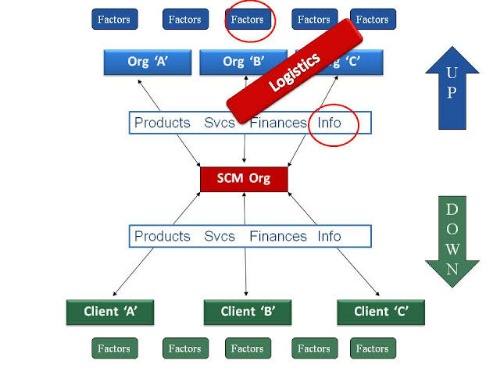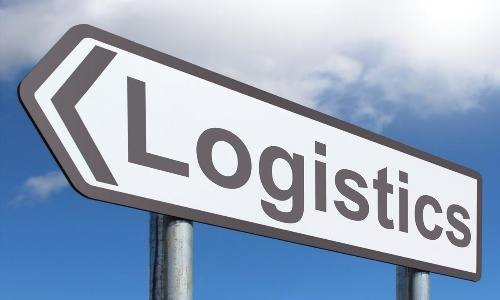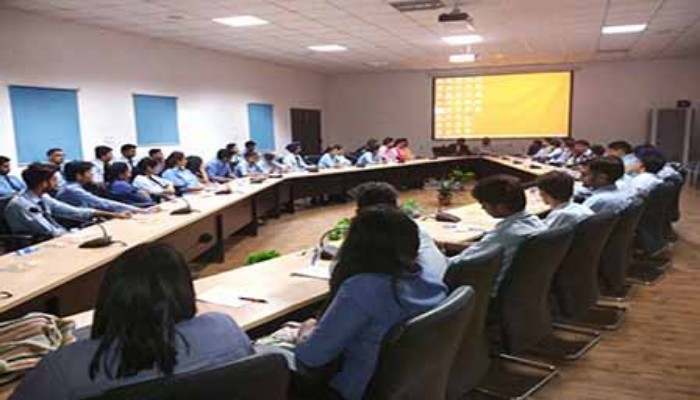Logistics and supply chain management is a persistently growing field. The Bureau of Labor Statistics estimated that the job opportunities in supply chain management will grow upto 7% in the upcoming 10 years. Understanding logistics, managing transportation and other operations, developing effective interpersonal skills and relationships are some of the main things that the students are helped with in MBA in logistics and supply chain management program.
Almost every company, whether small or large, operates a supply chain. So it becomes crucial to have professionals with experience in this field. This field operates mostly on a global level, thus enabling possibilities for professionals to work anywhere they want. But before we move onto MBA in logistics and supply chain management in India, let us first discuss some basics related to the field.
Logistics & Supply Chain Management (SCM): Meaning
In layman’s words, Logistics & SCM is defined as the process of amassing raw materials and delivering the final products in the market. Logistics can further be categorised into two types – Inbound Logistics and Outbound Logistics. Movement of raw material from suppliers to the company is referred to as Inbound logistics and movement of final goods from a company to market or the ultimate customers is called outbound logistics.

SCM refers to the management of the entire supply chain- from the flow of goods and services from supplier to the manufacturer, then from manufacturer to wholesaler, after that to retailer and lastly to the consumer. This industry is one of the major contributors to the economy due to its relation to several other industries. And this is the main reason possibly why the demand for a specialised course in MBA in logistics and supply chain management in India is currently on a rise.
Learning outcomes of the program
The MBA in Logistics and Supply Chain Management combines thorough training skills in business administration with in-depth study to enable understanding of strategic business issues across this field, so that you can help companies in tackling them after your placement.
This course would help you acquire knowledge and understanding of the multiple features of logistics and supply chain management like purchasing, materials management, supply-chain management, customs regulations, foreign exchange, international trade, information technology and so on. Though this program might be taught theoretically in some colleges, it creates ample room of opportunities for gaining practical experience in the field.
Students with the degree of MBA in logistics and supply chain management in India have several career opportunities in front of them. Most students in the field manage to get full-time jobs in an office setting. Sometimes, professionals might do on-site work at factory assembly lines, but that totally depends on the kind of job position one chooses to go for. For those who are interested in working with the lifecycle of a product in a quick-paced setting, a role of logistician is a perfect fit. Some examples of other jobs in this field are purchasing managers, operational managers, cost estimators, storage and distribution managers etc.

The sector is currently observing rapid growth due to the growing age of e-commerce, retail and manufacturing sector. This explains the reason why this field leads to creation of millions of jobs every year across the globe, including India as well.
According to a study conducted by the Institute of Logistics & Aviation Management (ILAM), the reach of this entire industry, talking in numbers (combined national and international logistics and delivery system), is more than US $8 trillion and it’s expected to reach US $15.5 trillion by 2023. The sector alone provides jobs to more than 40 million people all over the world.
Also read: Masters in supply chain management in Canada
MBA in logistics and supply chain management in India: Admission procedure
Online programs tend to have more tough admission processes than on-campus programs. Online students (though they have instructors) often complete the coursework at their own pace. Due to this distinctness, some admission teams require the students seeking admission in online programs, to submit more in-depth application materials than students who want admissions in their on-campus programs.But this again is not always true in all cases.
The application process helps to check if the student is ready enough to take on the responsibilities and challenges that will come with online programs.
Prerequisites for admission
1.Bachelor’s Degree: Students seeking admission to MBA programs must have completed their bachelor’s degree before they can apply for a master’s program. They must submit official transcripts i.e. their graduation degree with the application.
2. Professional Experience:Professional experience is not a required compulsion in all MBA courses but in supply chain management students, the students might be asked to provide their resume to demonstrate their job experience and how it is related to this course.
3. Minimum GPA: The students seeking admission to this course must meet the minimum GPA requirement, typically if any, specified by the college.

Materials for admission
Application Form: Admission in MBA in logistics and supply chain management in India, the students are first required to complete and submit the admission application form.
Transcripts: Students need to submit transcripts with the application form when applying to this program that usually cost students a small fee.
Letters of recommendation: Letters of recommendation attached with your application make your resume look more worthy and might increase the chances of you passing the interview criteria for admission, if any. Most students generally use professional and education references and attest to their skills and experience.
Test Scores: Though not all colleges require test scores, most require students to submit their GMAT or GRE scores that meet their minimum score requirement.
Application Fees: An application fee is required to be submitted by the students along with their application form.
Structure of the course

MBA in logistics and supply chain management is a two years program that is delivered in both online and on-campus mode. This course is divided into four semesters; the first and second semesters focusing on general management papers while the other two on Logistics and Supply Chain management specialization with an industry project experience in the last semester.
Conclusion
Today, the companies are consistently in search of professionals who can prove resourceful to their organisation- in identifying the right amount of investment required for enhancing the profits of their business. Furthermore, with the advent of globalisation, there has been a considerable increase in the demand of personnel possessing qualifications in the field of logistics and supply chain management.
In other words, we can also say that for students pursuing specialising in this field by doing MBA in logistics and supply chain management in India, this field has a lot to offer since it is an ever growing field and it helps the businesses to develop a global approach and cater to the needs of their customers in a more better way.
